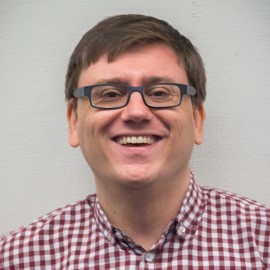Bruce Rusk
Research Area
About
My main areas of research and teaching are the cultural history of China, especially the Ming (1368–1644) through mid-Qing (1644–1911) periods. I have worked on the history of textual studies, literary culture, writing systems, and connoisseurship.
Most recently, I co-edited a history of Chinese literature through the lens of information management practices. Literary Information in China: A History, co-edited with Jack W. Chen, Anatoly Detwyler, Xiao Liu, and Christopher M. B. Nugent, was published by Columbia University Press in 2021.
My first monograph, Critics and Commentators: The Book of Poems as Classic and Literature, was published by the Harvard University Asia Center in 2012. It studies the interactions between literary criticism and classical studies in imperial China, showing how the two fields borrowed from each other while remaining distinct in status and approach.
More recently, I collaborated with my colleague Christopher Rea on a selected translation of the Book of Swindles (Dupian xinshu by Zhang Yingyu), an early-seventeenth century collection of short stories about confidence artists and other clever criminals.
My current research project, part of a larger interest in how ideas of authenticity and deception were negotiated in late imperial China, concerns practices of authentication surrounding material culture. I am preparing a study of one especially problematic category of artifact, so-called “Xuande incense burners” (Xuande lu), bronze or brass vessels supposedly cast in palace workshops in early fifteenth century but in fact invented over a hundred years later and “provenanced” by texts forged in the eighteenth century. I have also studied techniques for assaying (and faking) silver ingots, the most important form of money during the Ming-Qing period.
Another interest is in the digital humanities and the automated analysis of textual and visual data. I am working with groups at UBC and around the world to develop a repository for material on East Asian religions collected by the SSHRC-funded project From the Ground Up (FROGBEAR). We will collect a large body of visual and audio-visual data documenting lesser-known sources for understanding religious practice in East Asia, which is available to the public through an open access repository.
I am also the webmaster and past president of the Society for Ming Studies, a scholarly organization devoted to the study of Ming history and culture.
Prior to joining the Department, I taught for six years in the Department Asian Studies at Cornell University, I joined the Department of Asian Studies in 2012, but spent the 2012–13 academic year on leave at the Institute for Advanced Study in Princeton and the National Humanities Center in North Carolina and will be teaching in the Department for the first time in 2013–14. In 2004 I received a Ph.D. from the University of California, Los Angeles, writing a dissertation entitled “The Rogue Classicist: Feng Fang (1493–1566) and his Forgeries,” on a set of classical texts forged in the sixteenth century; from 2004 to 2006 I was a postdoctoral fellow at Stanford University.
My B.A. (History Honours) is from UBC, so I was excited to return to Vancouver and to be joining the vibrant community of scholars here.
Teaching
Research
Research Interests:
Authenticity and forgery, especially in textual studies and material culture of early modern China (Ming and Qing periods)
Transmission and preservation of knowledge, including cultures of collection, book production, and artistic reproduction in early modern China
History of philology in pre-modern China, especially the Confucian canon and traditions of scriptural scholarship
Writing systems in East Asia, comparative grammatology, cultures of the written word, and interaction with other scripts
